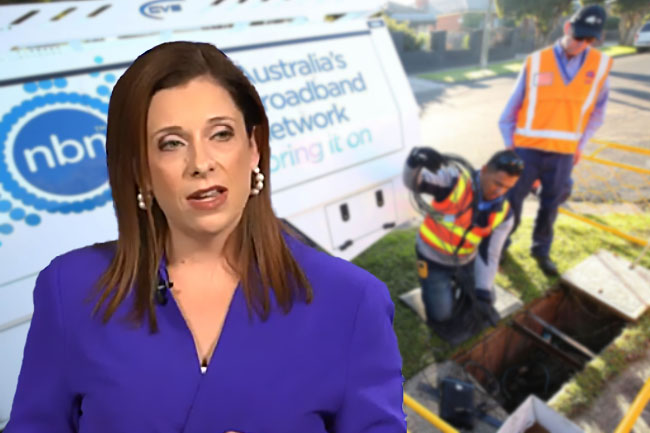With all the new announcements in this week's Federal Budget, long-term policies regarding the NBN have been forsaken. Paul Budde reports.
THE 2022 BUDGET has been characterised as a political budget and one that mainly consists of short-term policies and handouts, while what is needed are strategic long-term policies.
Where is the national long-term vision for the country, linked with appropriate long-term policies? This applies across all the areas the Budget covers: wages, cost of living, infrastructure, energy, climate change and yes, of course, the NBN.
There were no structural policy announcements, for example, on electric vehicles, using smart technologies to upgrade our cities, smart energy, disaster mitigation, research and innovation, housing (smart living) and so on.
Again, we seem to be the “lucky country”. Sadly, thanks to the war in Ukraine, resource prices are going through the roof and Australia’s economy is largely resource drive. Further – sadly, thanks to COVID-19 – we have seen a collapse in immigration and as a result, we have extremely low unemployment. This all provides the Government with extra money to slosh around. All aimed to survive the next Election.
There was no new information in the Budget regarding the NBN. The main news of the upgrade of fixed-wireless services was already announced a week ago, as I reported in my previous article.
The NBN, amazingly, holds a unique position in the Budget. All of the other short-term handouts mentioned in the Budget could disappear overnight if Labor wins the next Election — but not the NBN.
The Opposition has continued to announce that it will match the Government's promises and even better them, so both sides agree that there is an urgent need to upgrade services in regional and rural Australia.
We also saw a similar development with the announcements of the fibre to the home/fibre to the curb (FttH/FttC) upgrades. Both parties have a very similar policy, both based on replacing parts of the fibre to the node network (FttN).
In my article last week, I was critical that after years of complaints and denial from the Government, weeks out from the Election, it now understands there is a problem and suddenly starts throwing money into the NBN.
A similar rebuttal followed from the Communications, Electrical and Plumbing Union of Australia (CEPU).
“The NBN was set up to fail from the moment this Government chose to replace the fibre to the home roll-out with aging copper wires. This Government has had years to fix it. Instead, all it’s done is allowed the network to be riddled with pyramid sham contracting schemes that have left workers high and dry and customers cringing over endless connectivity and speed issues.”
What we hadn’t heard before was the announcement of more than $1.3 billion to improve mobile phone coverage across 8,000 kilometres of regional transport routes.
Looking at other infrastructure announcements made in the Budget, I would again have the same question — how strategic are these investments? Are they based on a long-term vision or are we just simply providing bandages and handouts at least partly based on pork barrelling?
At the same time, I am also a pragmatist and commented that any upgrade to the NBN that is of benefit to the Australian broadband users is welcome.
Having said that, it is unclear where this extra money actually comes from. Is it just another use of money that was in one way or another already was allocated? Is it coming from the recently implemented broadband tax? We don’t know. The broader issue of transparency in relation to broadband spending was also discussed. The Minister consequently announced that new rules would be implemented to create transparency regarding the money NBN Co spends on its regional network.
I also mentioned the potential competition issues. Other providers who also provide services in regional and rural Australia are not treated in a similar way and they questioned the cost-benefit exercise. In other words, why they were not involved and asked for solutions. This could have provided a better insight into how best these issues can be addressed at the best possible price. Furthermore, they argue, as I predicted, these government handouts undermine their own investment in regional networks.
In other NBN news, Telstra again asked NBN Co to develop a $30, 50/20 Mbps NBN product for the lower end of the market. This would require a wholesale price from NBN Co of $20. The Telstra-led annual Australian Digital Inclusion Index research shows that more than 14% of Australians would currently need to spend more than 10% of their household income to gain access to the quality, reliable connectivity required to be digitally included in the modern era. The index found that around 10% of Australians are digitally excluded.
Obviously, many of the Budget announcements do have a large proportion of ICT elements in them. Cybersecurity and space technologies were important elements here. Artificial intelligent technologies are a key part in these new investments. But a range of other sectors also received significant amounts of money. All of them now depend highly on digital infrastructure to support them. In many areas such as healthcare, education, social services and small businesses, connectivity remains a critical element.
However, it is not just technical connectivity, it is also digital skills, affordability and social issues that need to be addressed. All of these require long-term strategic policies and this is still an area where two-party political systems are being a barrier as often what one party implements, the other one undermines — as we are seeing over and over again.
Paul Budde is an Independent Australia columnist and managing director of Paul Budde Consulting, an independent telecommunications research and consultancy organisation. You can follow Paul on Twitter @PaulBudde.
Related Articles
- Government to fund NBN boost for regional areas
- Government advised to accept 'sunk' NBN costs
- NBN is still a financial disaster
- Starlink takes on NBN to improve Australian farming
- How the Government could shape the 2022 digital economy
 This work is licensed under a Creative Commons Attribution-NonCommercial-NoDerivs 3.0 Australia License
This work is licensed under a Creative Commons Attribution-NonCommercial-NoDerivs 3.0 Australia License
Support independent journalism Subscribe to IA.















